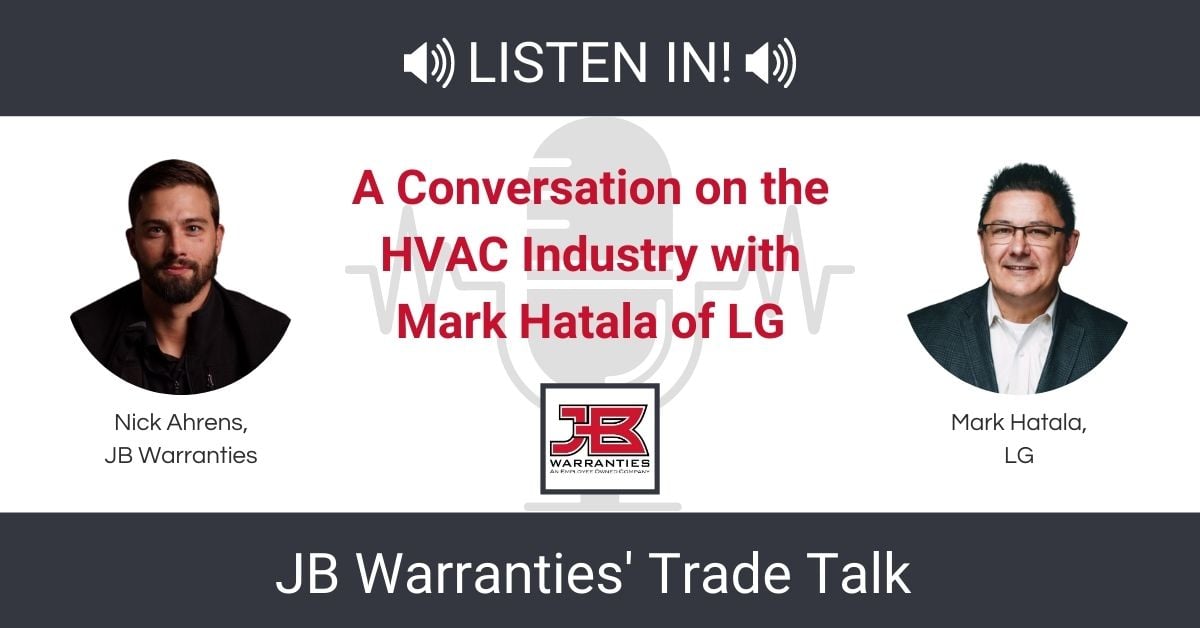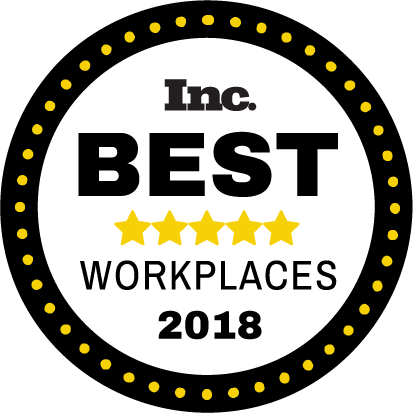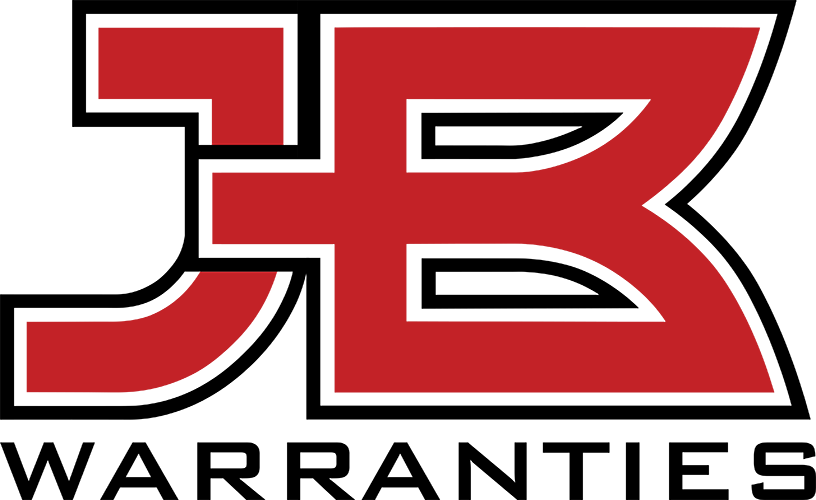
In this episode of Trade Talk, Nick Ahrens talks with Mark Hatala from LG. They spend time chatting about the changes to the HVAC industry in 2020 and extended warranties.
Host: Nick Ahrens, JB Warranties
Guest: Mark Hatala, LG Electronics
Mark Hatala is the National Distribution Installer Program Manager at LG Electronics. He is responsible for contractor program and business development in the U.S. working with the regional sales, rep firms and area sales managers. His primary focus is on developing and launching the LGE Contractor network while identifying and developing other channel opportunities.
Not in the mood to listen? Read the transcript instead.
Alanna Jackson: Hello everyone and welcome to this edition of JB Warranties Trade Talk. In this episode, Nick Ahrens speaks with Mark Hatala from LG to talk about how they adapted to the new norm for the HVAC industry.
Nick Ahrens: How has LG adapted through all of this? What's been your most successful changes or really did you have to adapt that much?
Mark Hatala: I think it was a matter of speeding up the adaptation that we were working on anyway. A lot of the things were being driven to web-based and virtual broadcasts and blogs and updates and stuff like that. So it was more a matter I think... And even work from home has always been something in the works that LG, we've done. It just forced a lot of people's hands a lot quicker than I think we would have liked. So it just moved us into the next phase of technology in the HVAC industry quicker than anybody expected.
Nick Ahrens: Right, right. That's actually, your point in the technology adaptation, I've seen how many folks probably weren't using a lot of these technologies before and have really adopted them and it seems like embraced them, even from the contractor level all the way up. So it's been pretty neat to watch in my opinion.
Mark Hatala: Oh, I agree 100%. We've always, and I personally always believed that webinars and Zoom meetings and online learning were all something that the HVAC industry, contractors, distributors manufacturers, should embrace. But we really didn't enough because nobody was forcing anybody to do it. I know a lot of the ACA's of the world, the HARDI's of the world, were all trying to put more online, Blue Hawk, put more online, put more programs online. But again, our industry is a little slow in grasping on new technologies. But I guess the silver lining in this disaster is that it forced a lot of people into using these technologies and what I'm finding that the people that I'm talking to up and down the stream from contractors, distributors and manufacturers is they're actually enjoying this now. They're enjoying the technology. Once they get over the hurdle of learning how to set up a webinar, how to set up a Zoom meeting, some people are starting to have fun with the technology.
Nick Ahrens: Definitely, definitely. And also I've heard the same thing, which really surprised me the fact that they were enjoying it. There's the frustration getting set up, but I've also found that it seems like most people are going to keep this up even after things go back to normal, so to a certain extent.
Mark Hatala: I hope so. I hope it can keep up what we're currently doing, but I also hope it invites newer technology, more technology and expanding the outreach. Contractors who've been forced, I guess, into doing less face to face, which meant the contractors who had the very good online presence, the very good social media presence already, I understand and from what I hear in the field, have been doing okay with that, not hurting as bad as some of the other contractors who've shied away from all of the social online stuff. They shied away from emails. They shied away from using technology. They liked going out, going to the homeowners, meeting with the homeowners or the business owners-
Nick Ahrens: Talking to them face to face.
Mark Hatala: Doing a face to face, belly to belly, however you want to phrase it with sales calls, making that interpersonal relationship meeting. They enjoyed that. Take that away now and we're seeing how the other side works. So hopefully there'll be a hybrid situation after all this is said and done, where contractor base will understand that they need to step up their social media, their online presence game, their web page game. They need to step that up and also maintain that personal relationship with their consumers.
Nick Ahrens: Yeah. I think that's something that maybe you don't realize until you've done enough of these webinar style calls that you really can connect with people even though you're not right in front of them. So it's definitely a good adaptation that I think overall, it's going to help the industry in the long run.
Mark Hatala: I think so. I mean, that's the silver lining out of this disaster.
Nick Ahrens: Yeah, definitely. So moving on a little bit here, have you all noticed any differences in how this has impacted new construction versus change outs and things like that?
Mark Hatala: New construction, from what I hear in the field, from what I understand, was pretty much slowed down, but not stopped. The residential replacement from what I understand came to a complete stop because in the beginning, nobody knew what was going on. Nobody wanted anybody in their home. The whole system change out replacement was only on an emergency basis. Even sales service calls were strictly on emergency basis. Consumers and business owners didn't know what to do. So I think that's going to be more of a blip in the system as we get around this and figure out how to handle it and how to do safe sales calls and safe service calls.
Mark Hatala: I know some major industrial commercial products have been put on hold. Now whether the financing comes back for them or not, I don't know what's going on there. But from the economists that I read and that I hear from, the residential, light commercial business is more of a V type recovery because it shuts off real quick, but it also can start up real quick. The commercial product side of it, from what the industry economics talk about, it's slower to shut them down. But when you shut them down or slow them down, it takes longer to start them back up.
Nick Ahrens: Sure. And that makes sense with the resources with each of those scenarios. It's interesting here, we're based in Texas. So there was definitely a slowdown, just a visual slowdown in the new construction. But they seem to have come roaring back, especially in the commercial sector. Just down the road from me, there's a middle school being built and it was put on hold very quickly. I think they maybe had two weeks, three weeks down, but still trying to complete stuff. And now they're just about finishing a project that's supposed to be done in August. So they didn't miss their deadline. And so to your point on the commercial side, it definitely seemed to tick back up quickly. So that makes sense.
Mark Hatala: And being up in the northeast, we're still... New Jersey, New York are still no travel states. We still don't have... the last time you just try to travel anywhere if you're from New Jersey, they want you to self-quarantine no matter where you go for 14 days. So it's still a little tighter up in this market.
Nick Ahrens: Definitely. Yeah. Yeah. We have been definitely relatively lucky down here. So, and I think that goes across the customer base as well. We've been able to get out and about, whereas in places like the Northeast, they just don't even have that option. So-
Mark Hatala: Well, the hotspots. California had its hotspots, New York had its hotspot, Boston. Yeah, wherever the hotspots are, they're a little slower coming back.
Nick Ahrens: Right. Right. So looking at the next questions here, so we talked a little bit about the selling methods and how contractors are adapting to doing that. Whether it's virtual or just adjusted safety measures when they're actually in the home, have you seen them adjusting to new products? I mean, there's been a lot in the news about indoor air quality products, stuff like that. Are you seeing folks adopt more products that maybe they might not have dipped their toes in before, but they're willing to do that now or embracing it?
Mark Hatala: I've been an advocate of IAQ from day one. I think we've really, the HVAC contractor, really missed the boat on indoor air quality. This forces them into it. I don't know how many I think are embracing it, but I think they're being pulled into it because their consumers are requesting it. And with the consumers, it seems all the way back to digital thermostats or setback thermostats, the day of... If it wasn't for the electric company offering a $10 rebate for a setback thermostat, I think the contractor base would still be putting T87F's on the wall.
Mark Hatala: But this is a way where the consumers are saying, "You're installing something in my home." Indoor air quality, virus is on everybody's mind. All the studies are coming out now you have a better chance of catching COVID-19 indoors with bad air circulation than you do outside. So the consumer is requesting this. Like in any industry, you have the leaders, the midterms and then the followers. The leaders are pushing and driving IAQ. Those contractors, right now we're in a part where consumers are demanding it, so the guys in the middle are picking it up and the laggers they're being forced to address IAQ because consumers... Physically new construction, they're residential, light commercial, housing, schools, they're demanding something on IAQ.
Nick Ahrens: Right. Demand is the right word, I'm sure. So that'll pull those folks up into the vacuum I think that as far as adopting those different technologies.
Mark Hatala: The problem with the IAQ is how much of it is real and how much of it is smoke and mirrors.
Nick Ahrens: Yes. And with this situation, it seems like there's a lot of that. Just in general, knowing what's going on is hard. But I think the important part of it is what you said, that consumer demand is there. So if contractors want to take advantage of it, they just need to learn about it and adjust.
Mark Hatala: Exactly.
Nick Ahrens: And obviously, making those huge promises isn't the way to do it. But-
Mark Hatala: But you'll see 1,000 new products on the internet tomorrow for this kills every germ and virus known to man for only $29.95. But wait, there's more. You get two.
Nick Ahrens: Yes, exactly. And that's the problem is that if they're not doing it, they're going to miss out. If they're not at least offering it, there's going to be a consumer who is going to work with someone who is.
Mark Hatala: They're going to go find somewhere to buy it. Right.
Nick Ahrens: So, and I like that that's kind of pulling folks into these products that maybe they were... Same thing as the technology, probably a little bit of fear of the unknown, not sure about the actual quality and not wanting to over promise to customers. But I think realizing that if the consumers wanting it, you can still be honest and make sure they're getting what they want.
Mark Hatala: Yes.
Nick Ahrens: Definitely. Well, good. So before we move into more extended warranties, is there any other observations or anything that you've kind of learned through this that you think it's important that contractors consider or think about?
Mark Hatala: I think that right now it gets back to hopefully they're learning or they have learned that your presentation or your first interaction with your consumer is now more valuable than anything, because it is through technology, whether it's phone calls, whether it's Zoom meetings or webinars or whatever. You don't have... The ease of being turned off comes much easier. When the contractor's in the home, the homeowner is less likely to just throw him out the door. But if he's presenting something in a Zoom meeting, all they have to do is turn their computer off. They don't feel like they insulted anybody. They're just like, "No, thank you."
Nick Ahrens: Don't have to do anything. We're good.
Mark Hatala: When you're in the house, you have a lot more opportunities to make up for missteps or miscommunications or misunderstandings because you're right there in front of a person.
Nick Ahrens: Definitely, and-
Mark Hatala: And I think that's in that first presentation, the importance of looking your best and presenting your best right from the start.
Nick Ahrens: Right. Definitely. And yeah, that messaging just becomes that much more important when you're digital, because and not only can they just get away quickly if they're not interested, or if they feel that they're not interested, there's room to misinterpret. So having that messaging on point and what you really want to say is very important. That's a good point.
Nick Ahrens: So looking more about just extended warranties, some of these questions. Have you seen and been able to experience how the LG Assurance Care Plan has helped some of the LG contractors or have adopted that program and are seeing some success selling it?
Nick Ahrens: And you don't have to name any names or anything, but just curious [inaudible 00:14:29] experience.
Mark Hatala: Yes. I keep on hearing the anecdotal stories. I mean, part of the downside is a lot of times you don't have people calling you to talk to you about all the success. They're more or less calling you to complain when something goes wrong.
Nick Ahrens: That's just the way it goes.
Mark Hatala: But the ones that you do hear that projects have been gotten because they had the 12 year, projects have been gotten because they could offer the labor warranty. I've got several contractors now who say they offered a labor warranty on every job. The consumer has to back it out. They finally come to the conclusion that you can offer things in your proposal, let the consumer back out what they don't want. I think the American consumer wants the warranties, wants the extended warranties, wants to look at the labor. Might not always buy the labor warranty or extended warranties, but wants to be offered those things because everybody is doing... I mean, you buy a car, you buy a stereo, you buy a cell phone, you can buy insurance on it.
Mark Hatala: So if all the other companies, all the other industries weren't offering something like this, they're only doing it because they know the American consumer is looking for this. Yeah, not always buying, but they're looking for it. I do get the calls that guys are telling me that in order for them to be competitive in their market, they have to have the LG Assurance Program. Otherwise they're just not even in the ballpark. They're considered part of a lower tier product line. And then all they're talking about is price and nobody wants to be in that boat.
Nick Ahrens: Yeah. You never want to have to get in there with price. And that's definitely something that drives... Especially in new markets, when there's that competition there, that definitely drives the adoption of the warranties. And I think that just goes back to your point that the consumer wants it, and that's what's driving it. Maybe somebody started offering the warranties first, but ultimately the consumer sees the value. And to your point, I think I mentioned this, but we had a study done last year, basically over from 2019 back to 2017, folks that either had a maintenance contract or an extended warranty. And we saw that from that study, we saw that about 45% of people were at least being offered an extended warranty. 20% I think said that they were never even offered a warranty.
Nick Ahrens: But then the other interesting part that goes in with that is 25% of people that bought a new system, bought an extended warranty in those previous two years. So again, in line with what the consumer wants and at least offering it, we've seen is the most successful. I think you and I have talked a lot about you said you've got a few contractors who have really adopted it and been engaged with the warranty program. Can you expand a little bit more on the things that we've talked about before, like the offering the extended warranty every time and kind of how we've discussed that before, just with the value of making sure you're gaining those consumers that want it? Does that make sense?
Mark Hatala: Yeah. Well, what I've always talked to contractors about was the value of offering and informing your consumer of all the services you provide. And that includes maintenance contracts, extended warranties, labor warranties, any other thing that you provide. If you don't let the consumer know all the services you provide, then the consumer can not take advantage of the services they don't know about. What I find is, again, the ones who are, and I've heard this outside the industry. The warranty average, extended warranty average is about 20% acceptance rate. I don't know how true that is, but I hear that from the big box stores, figure 20%. The automobile industry figure is 20%. But everybody's, from what I hear it, every other industry is shooting for that 20$ to 25% acceptance mark in the field.
Mark Hatala: And the importance of contractors knowing that if consumers are looking for this, if they don't at least inform the consumer that they can provide it, then if another contractor comes in and does inform them, chances are they're going to lose the sale not because of their own fault, but because of something they didn't offer. They won't lose the sale because they offered something. They won't lose it I don't think, I don't believe anybody's going to lose a sale because they offered an extended warranty. But I do believe sales could be lost by not offering an extended warranty.
Nick Ahrens: Mm-hmm (affirmative). Yes. And I think that's a great point that there are people who just don't believe in extended warranties. It can be polarizing at times just because there's people that don't believe in them, but that 20% to 25% market... And I don't think I've ever heard of somebody that doesn't believe in them. They may say, "No way, I don't want it." But it's like you said, it's never cost them to lose a job in particular. And one thing that we hear from contractors is that even if the homeowner doesn't want that warranty, sometimes they'll select the person who offered it just because there's some trust in there if you're willing to work with someone and not come out and charge them every time for up to 12 years. That garners a lot of trust. So that definitely makes sense.
Mark Hatala: Oh definitely by having the conversation and informing the consumer of your services and everything you offer, again, goes back to building trust in the consumer's mind. That natural reaction is if the next contractor comes in and offers it and even if they did bother to call back the first contractor and say, "Hey, do you offer this?" And they say, "Yes, we do," the natural human reaction, I think is going to be, "Well, if you didn't tell me about that, what else didn't you tell me about?"
Nick Ahrens: Yes, absolutely.
Mark Hatala: So the trust can go right down the drain.
Nick Ahrens: Mm-hmm (affirmative). Definitely.
Mark Hatala: It's silly, but that's human psyche.
Nick Ahrens: Yeah. It's just a natural reaction, to be honest. That's kind of how you think, what else don't I know? You don't know what you don't know so.
Mark Hatala: Right. And if you didn't offer me this, what else didn't you offer? Why? What are you trying to hide from me? [crosstalk 00:21:21]. And these are the things that run through people's heads while they're talking to you. And I think it's a value to the consumer. I believe that you talk about certain people won't accept it at all, but that's fine. But I believe from a contractor's point of view, sometimes our contractor base gets it in that they don't like extended warranties. They never buy extended warranties. So they may never offer them because they don't believe there's a value in them.
Nick Ahrens: Right.
Mark Hatala: Which makes you wonder, what's going on their end and you tend to attract people who are like you. So it's easier for someone who doesn't believe in extended warranties to sell to somebody who doesn't believe in extended warranties.
Nick Ahrens: Yes, absolutely.
Mark Hatala: And then you have no sale.
Nick Ahrens: And then they're just... Nothing gets moved. So that definitely... Yeah. And that's, again, there's just a natural inclination to move towards those likeminded people. So we're seeing that in the world right now, for sure.
Nick Ahrens: Well, good stuff. So that's all I had. I'm not going to take any more time. I know you've got a busy day, but I really do appreciate it, Mark.
Mark Hatala: No problem.
Alanna Jackson: All right, folks, that does it for this episode of JB Warranties Trade Talk. Thanks for listening in. If you're looking to improve your customer satisfaction, increase retention, and generate additional revenues, trust the experts at JB Warranties. Register for your premium protection plan dealer account today.
Nick Ahrens
National Account Manager






